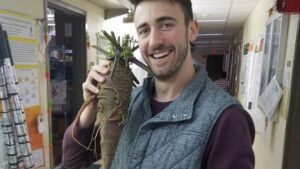East-West Seed, a tropical vegetable seed company based in the Netherlands, is partnering with farmer groups and universities in Vietnam to help farmers respond to drought and salinity in the Mekong River delta.
The project was presented to Vietnamese Prime Minister Nguyen Xuan during his state visit to the Netherlands July 8-11 at the invitation of his Dutch counterpart, Prime Minister Mark Rutte.
The Mekong Delta has been struggling through severe drought episodes and salinity intrusion for several years, which escalated recently due to the 2016 El Niño phenomenon, the second most severe since 1965. The Vietnamese government has recognized this as a serious concern and set a call to address and take action on these climate changes. Approximately 60 percent of the Mekong River Basin’s population rely on agriculture for food security and livelihood.
The project aims to find ways to respond to salinity and drought to the Mekong River delta by collecting information on crops with a focus on salt and drought tolerance and identifying field level technologies and strategies to deal with salinity and drought. It will include practical applications and will seek to find out what works through on- and off-farm experiments and crop testing.
Key to the project’s success will be the cooperation of stakeholders, such as farmers, research organizations and the private sector. Project partners include the Vietnam Farmers’ Union, Nong Lam University, Land, Water & Food Consult, East-West Seed and Wageningen University.
Operating in Vietnam since 1997, East-West Seed is known as the brand Hai Mui Ten Do — in the local language, it means two red arrows. The company delivers nearly 100 different vegetable varieties to Vietnamese farmers, including those of high economic value: Demon pepper, Tiela chilli, Suprema pumpkin, Arjuna pumpkin, sweet corn and more.











